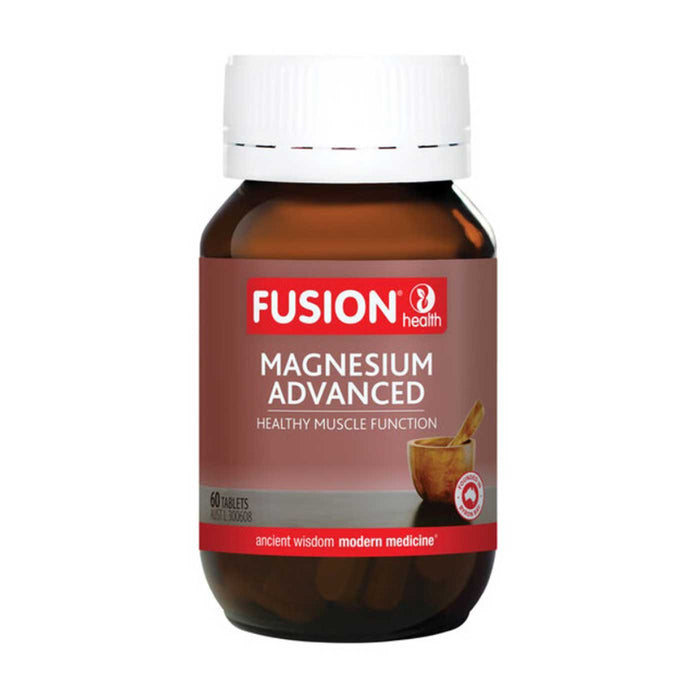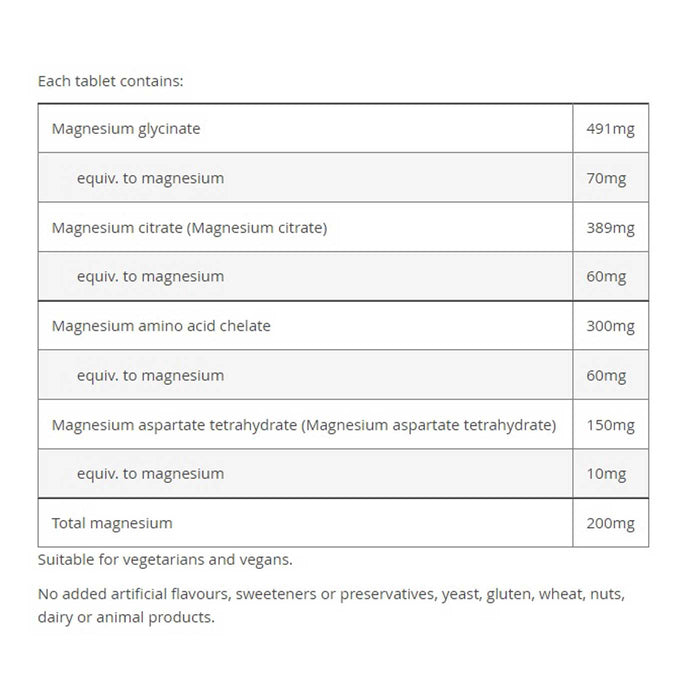Magnesium is an essential nutrient for human health and plays a critical role in over 300 cellular reactions in the body. These reactions involve many processes, including healthy muscle and neuromuscular function, energy production and sugar metabolism, as well as normal cardiovascular health.
Why choose magnesium glycinate?
The absorption of magnesium varies according to the type of magnesium consumed. Magnesium glycinate is a form of magnesium that has high bioavailability and stability within the body. This form of magnesium is delivered intact to the intestines for easy absorption.
Magnesium glycinate is more readily absorbed than some other forms of magnesium, as are magnesium citrate, magnesium aspartate and magnesium amino acid chelate.1,2
Muscle function, sleeplessness and magnesium
Magnesium is needed for healthy muscle contraction and relaxation. Magnesium helps relieve tired muscles, muscle cramps, muscle spasms, sleeplessness as well as restlessness when they’re associated with inadequate amounts of magnesium in the diet.
Electrolyte balance and exercise
Magnesium is involved in many processes that support muscle performance, including energy production and electrolyte balance after exercise.
People who engage in strenuous exercise may have increased requirements for magnesium, and magnesium supports physical endurance and stamina in people whose diets are magnesium-deficient.
It also plays a vital role in restoring electrolytes, particularly after exercise, when magnesium can be lost through sweat.
Sugar metabolism, cardiovascular health and magnesium
Magnesium plays an important role in many enzymatic reactions involved in sugar metabolism. Magnesium also supports cardiovascular health when dietary intake of magnesium is inadequate.
Women’s health and magnesium
Reduced magnesium levels in blood plasma have been reported in women affected by premenstrual tension (PMT).3 Magnesium relieves symptoms of premenstrual tension, including mood swings, irritability and breast tenderness.
References:
1. Walker, A.F. et al. Magnes Res, 2003;16(3):183-191.
2. Firoz, M. & Graber, M. Magnes Res, 2001;14(4):257-262.
3. Facchinetti, F et al. Obstet Gynecol 1991 Aug;78(2):177-81.


